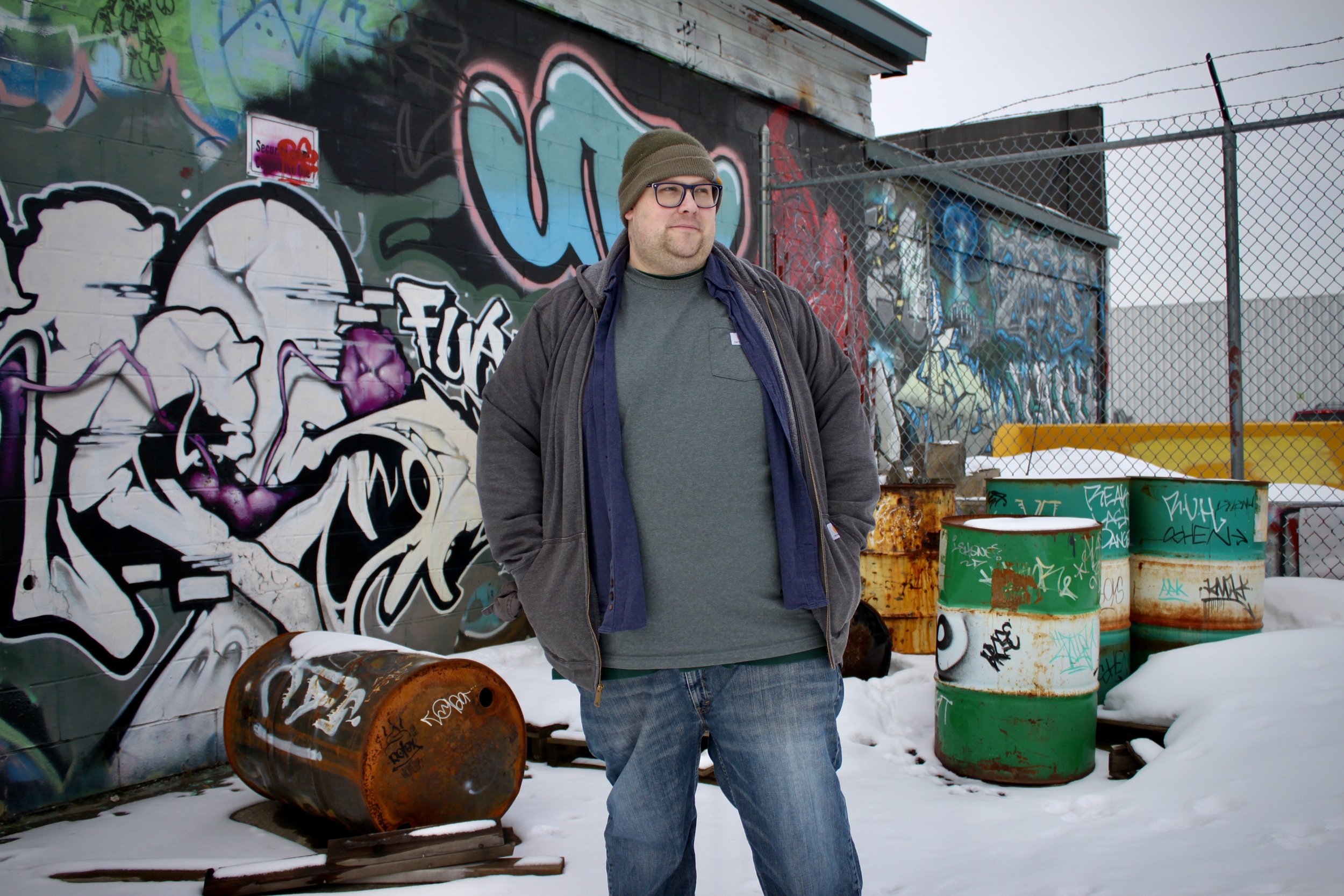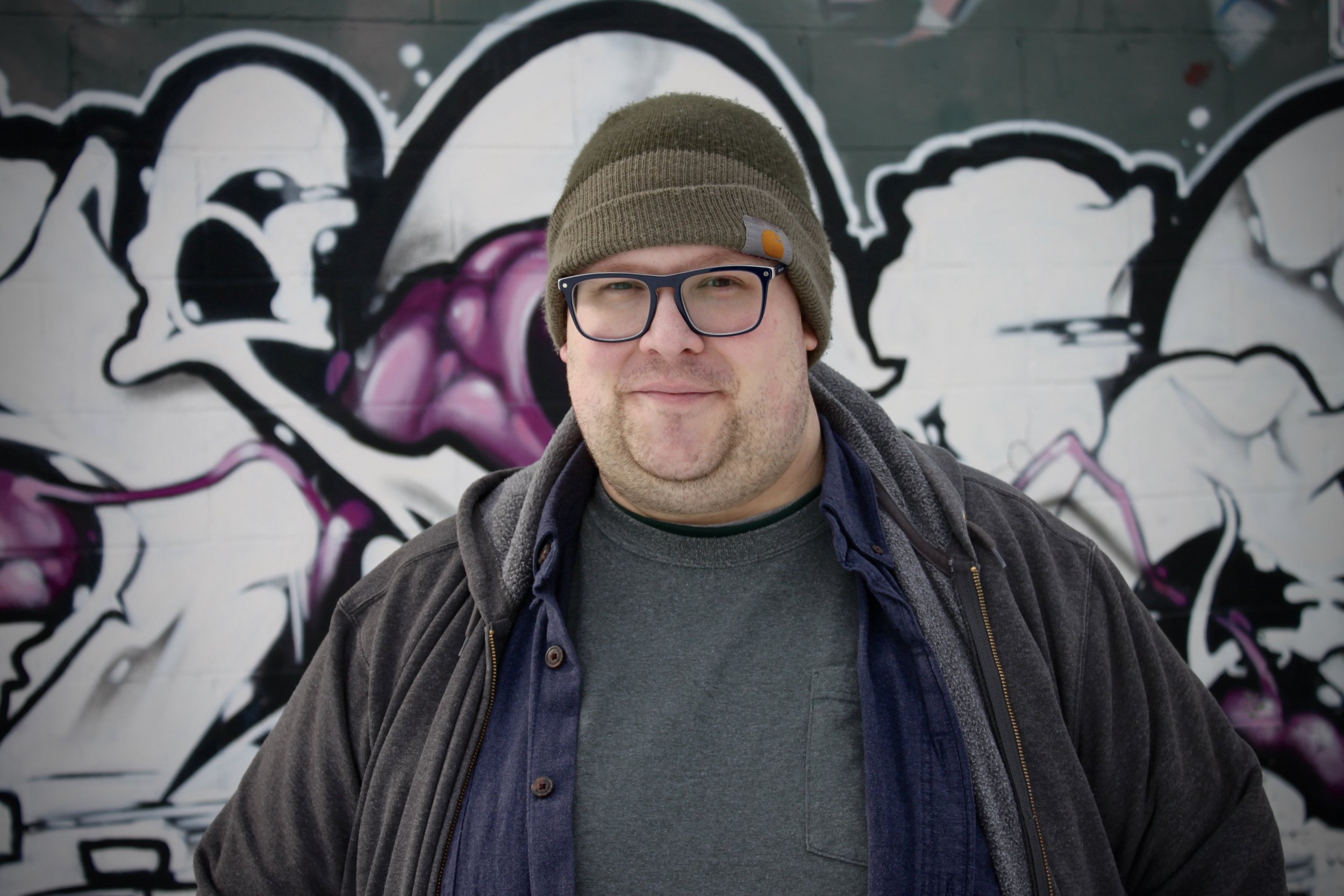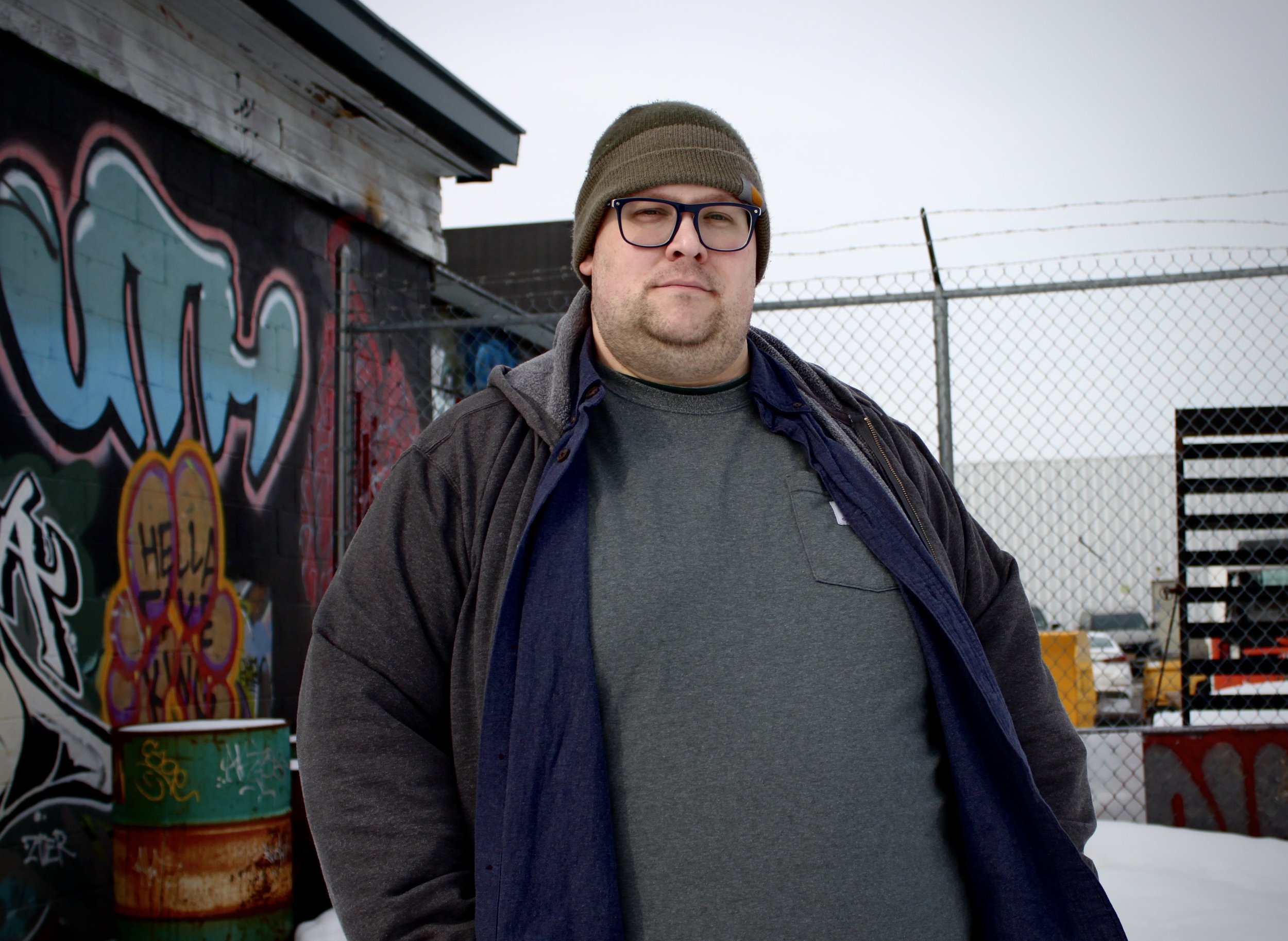Will Cleveland
“The struggle continues every single day. I wouldn’t consider myself healed, but I have grown and matured. Like I stated earlier, acknowledgment has been a big key for me. I am better able to recognize when I might be more anxious or when I might be confronted with a more fraught situation. So I wouldn’t call it recovery, I would call it maturation.”
NAMI: Have you ever had any mental health struggles? Do you live with a diagnosis? What has your experience been?
WC: Back in high school, I was diagnosed with depression and ADHD. I went to weekly therapy sessions and took a few different prescription drugs. These are still two things that I struggle with almost 20 years later. My struggles with mental health seem to be on a pendulum – it swings back and forth, going from manageable to crippling. When I moved to Montana for undergrad, I was very isolated from everyone and everything I knew growing up. It also served as a wake-up call, because I had moved across the country from my friends and family and had no choice but to confront my issues or I would be completely crippled by them. I stopped taking prescription medications altogether (and I certainly wouldn’t recommend this approach to anyone else, because this was a rash and impetuous decision). It did work for me, however. But I found that through acknowledgment of my struggles, discussions with loved ones, and a focus on the triggers of some of these issues, I have been able to be more cognizant of my anxiety, depression, and ADHD. Of course, this doesn’t always work. But it’s a start.
NAMI: How have you healed and grown from your experiences? If you consider yourself in recovery from something, what does recovery mean to you?
WC: The struggle continues every single day. I wouldn’t consider myself healed, but I have grown and matured. Like I stated earlier, acknowledgment has been a big key for me. I am better able to recognize when I might be more anxious or when I might be confronted with a more fraught situation. So I wouldn’t call it recovery, I would call it maturation.
NAMI: What forms of self-care do you practice? What keeps you balanced?
WC: For me, self-care is about giving yourself time to recharge and breathe. So it’s about unplugging from social media, not checking work emails, and making sure there is a division between work and home life. My wife has been my biggest advocate there. She has taught me about the importance of balance. Fresh air has been my biggest form of self-care. That could include hunting for new graffiti, hiking, and just being outside, even on a gray and cold day. You have to make your own happiness. And Rochester can be unrelenting in its cold and grayness. But if you take time to detach and take a walk, I am able to find a better balance. Secondly, just hanging out with my son, being 100 percent present with him, has been the greatest gift. He's done more to center me than anything ever possibly could. I'm eternally blessed and so, so excited (and scared) to watch him grow up. He’s the greatest form of balance I could ever possibly imagine, because he doesn’t care what else is going on in my life, he just wants me to be present.
NAMI: As a former journalist for the D&C, you became a public figure in your own right. As often happens to public figures, you dealt with trolls on social media. How did that impact your mental health? What might you say to those people if you were sitting across a table from them?
WC: In this post-truth world, I never expected journalism would become a full-contact sport. Even when I based a story completely on records obtain through an open records request (and even if the story were little more than a regurgitation of those records), there is some segment of our audience that would find fault in my reporting and would then label me “anti-cop” or a “commie lib.” So I became a public figure through my work (and I clearly relished that attention, too). The proliferation of trolls was probably one of the most difficult parts of the job. Via Twitter, people had instant access to comment on the links, videos, and reporting I shared. And because I almost always failed at it, I would read the comments. And in that cesspool, I would encounter some truly terrible stuff. Whether it would be making fun of my weight or making it even more personal, these often nameless trolls attacked me. This had a massive impact on my mental health. I often internalized what was said about me, despite knowing that these people are in the minority and that way more people appreciated and valued my work. If I were to be sitting across from those trolls, I would just ask them, “Why. What do you gain from doing this?”
NAMI: Another part of being a reporter is the 24/7 nature of the job. When news breaks, you have to respond. You worked long days and nights. I imagine this could easily lead to burnout. How did you combat that (if at all)?
WC: Journalism is something that becomes part of the fiber of your being. The best reporters are those who are so dedicated to the craft that it’s often hard to separate yourself from the job. And that’s really, really not healthy. It leads to a lot of burnout and you see a ton of folks, especially younger journalists, leaving the industry and heading into other fields. (I’m doing that myself, not because of burnout, but because I was presented with an insanely cool opportunity to do something similar to what I’ve been doing for the past decade.) My wife has supported me throughout all of this. She understood that sometimes I needed to leave the house in the middle of the night to cover an important story. In fact, she would say that she could tell I would be bugged if I didn’t go cover a story, because I would be constantly checking social media for updates. She also helped me recognize that I needed to strike a better balance and convinced me to turn off my phone and stay off social media when I wasn’t on the clock. I didn’t always succeed there, but that simple step allowed me to be more present with family. It’s just so important to remember that I’m not on the clock 24/7 and important to remember that I’m not doing the job to the best of my ability if I’m not taking care of myself and not recharging.
NAMI: Did you feel like there was solid support and compassion for mental wellness at work — or is there still the age-old media industry mentality of “if you can’t do the job, there are 100 people lined up to take your place”?
WC: There is very little support for mental wellness in the news industry. You’re expected to produce under pressure regardless of what’s going on in your personal life or whatever difficult situations you might’ve encountered on a recent shift. Sure, editors care about me and would ask, “Are you OK?” And yes, there is an employee wellness program through our corporate owner. But there is very little done to follow up or connect reporters with mental health-related resources. This leads to another area of potential burnout. So I’d like to see more done to support reporters, whether it be through a more robust employee wellness program, peer-to-peer counseling/mentoring, and scheduled days off for mental health.
NAMI: What forms of mental health-related stigma have you observed or run into personally? How do you combat stigma?
WC: People don’t wanna talk about feelings. I think I’m an outlier, because I’m pretty open on social media about how I’m feeling. (And that can often lead to some uncomfortable exchanges on social media.) So the stigma I’ve encountered comes from the naysayers on social media. But that’s why you don’t read the comments, because those people don’t matter. They make up the vocal minority. For every person who thinks I’m a commie lib (or whatever other insult you wanna hurl at me), there are innumerable more who think I am awesome. I need to remember that. The people who tell me how much I suck are also the people who aren’t actually reading my work and weren’t supporting it through subscriptions. So I’m not sure if stigma is the right word here, but I’ve dealt with a ton of folks who question what I’m feeling or invalidate me. I need to learn to ignore that. I need to focus on what matters, who matters. The best way to combat stigma is to be vocal and transparent, because if I’m feeling some sort of way, there’s probably an excellent chance that others are also feeling that way. So I think you remove the stigma by having uncomfortable conversations and showing people that it’s OK to speak out, OK to ask for help, and OK to be vulnerable.
NAMI: You're a new dad! There's a lot of conversation about the effects of having a baby on a mother's mental health. How's it been for you as a dad? Any surprises?
WC: Fatherhood is so trippy and unexpectedly wild. Nothing could’ve ever prepared me for what I’ve experienced in the past six months. But I also wouldn’t trade it for anything. We hear quite a bit about some of the issues that could potentially impact new mothers. That’s clearly important. But it’s also important not to lose sight of how much of a shock it could be for new fathers. Again, don’t be afraid to be vulnerable. I was depressed and scared when my son was born, because it was unlike anything we’ve ever experienced. You just have to be open-minded. And I hope you have a willing and supportive partner. My wife is the true MVP here.
NAMI: Do you think things are changing locally in terms of mental health awareness? Is stigma being dismantled in a palpable way? Where could improvements be made?
WC: Things have to get better. Keep talking. Own your truth, own your story. Don’t be afraid to ask for help. By being bold, you can help yourself and others. What works for one person, might not work for another. This is just my experience. And I hope that by talking about it, I might inspire others to do the same.



